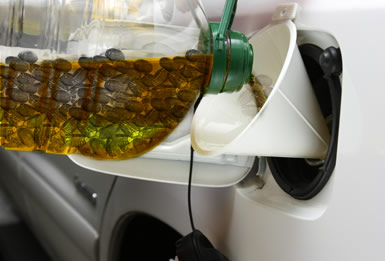
Jatropha Oil Extraction
Jatropha oil plant is generally cultivated for the purpose of jatropha oil extraction. The seeds are the primary source from which the oil is extracted. Owing to the toxicity of jatropha seeds, they are not ingested by humans. The major goal of jatropha cultivation, therefore, is performed for the sake of extracting jatropha oil.
When jatropha seeds are crushed, the resulting jatropha oil can be processed to produce a high-quality biodiesel that can be used in a standard diesel car, while the residue (press cake) can also be processed and used as biomass feedstock to power electricity plants or used as fertilizer (it contains nitrogen, phosphorus and potassium).
From planting to harvest. Treat the jatropha plant as well as possible to make the harvest as large as possible! (A reference to the compulsory planting of jatropha in Indonesia for the production of oil as machinery lubricant and fuel for the Japanese WWII war effort.). The plant may yield more than four times as much fuel per hectare as soybean, and more than ten times that of maize (corn). A hectare of jatropha has been claimed to produce 1,892 litres of fuel.However, as it has not yet been domesticated or improved by plant breeders, yields are variable.
Jatropha Oil Extraction Methods
Traditional Jatropha Oil Extraction Method
Traditional methods by which the oil is extracted from the seeds by hand using simple implements are still practiced in rural and less developed areas.
Modern Jatropha Oil Extraction Method
Methods like ultrasonication have been discovered to be effective in increasing the percentage of jatropha oil that can be extracted using chemical methods like aqueous enzymatic treatment. The optimum yield for such methods has been discovered to be around 74%. Jatropha oil extraction methods are still being researched. The goal of such researches is to discover methods to extract a greater percentage of jatropha oil from the seeds than the current procedures allow.


